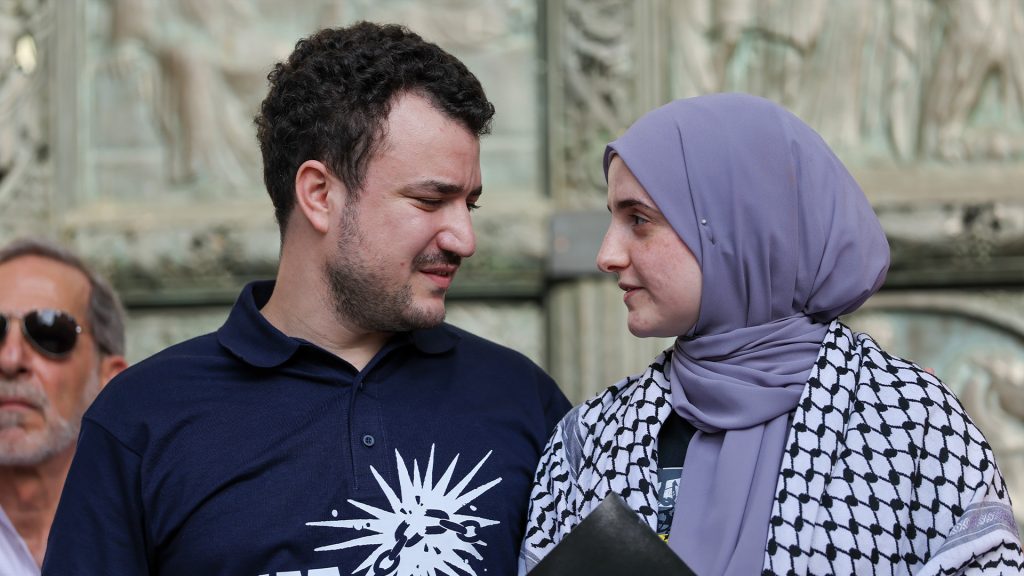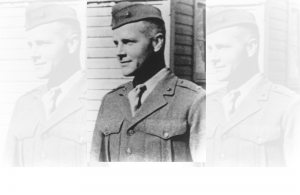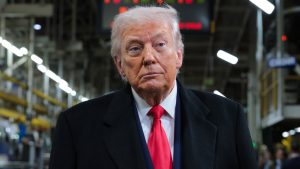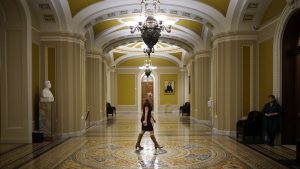Mahmoud Khalil speaks out after detention: ‘It felt like kidnapping’

After more than 100 days, authorities released Palestinian protester Mahmoud Khalil from immigration detention. Now, the former Columbia University student is speaking out about his time inside, saying, “It felt like kidnapping.”
He sat down for his first one-on-one broadcast interview with ABC’s Linsey Davis on “Good Morning America” Monday, June 23. She asked him why he believes the Trump administration perceives him as a threat. In response, Khalil said, “I’m here to present a movement that goes against what this administration is trying to do.”
Trump administration alleges national security threat
Plainclothes immigration agents took Khalil into custody on March 8. The Trump administration accused the 30-year-old of being a “pro-Hamas sympathizer.” Authorities claimed he participated in pro-Palestinian protests and campus encampments at Columbia University in 2024 and posed a national security threat.
Officials have also sought to deport Khalil. The Department of Homeland Security (DHS) alleged he lied on his green card application by failing to disclose that he worked with the United Nations Relief and Works Agency for Palestinian Refugees (UNRWA) from June to November 2023. The UNRWA is the main U.N. agency serving Palestinian refugees.
After the Oct. 7, 2023, Hamas terror attack on Israel, officials accused nine UNRWA employees of participating in the assault. The U.S. later suspended funding to the agency. The agency operates under a mandate to remain a neutral humanitarian organization.
No charges after 100 days in detention
Despite authorities detaining him for more than 100 days, prosecutors never charged Khalil with a crime.
“They tried to portray me as a violent person,” Khalil told Linsey Davis. “They tried to portray me as a terroristThe U.S. denied Khalil’s request to be released for his son’s birth, with Khalil saying it was the “most cruel” aspect of his detention. The U.S. denied Khalil’s request for release to attend his son’s birth, which Khalil described as the “most cruel” part of his detention.
Judge rejects government’s use of foreign policy clause
Since the Trump administration announced its increased deportations, they have attempted to invoke a law that allows deportation if the secretary of state believes the person could cause “adverse foreign policy consequences.”
However, on June 20, U.S. District Judge Michael Farbiarz ruled that Khalil is a legal U.S. resident and stated that the United States cannot deport or detain Khalil for foreign policy reasons.
The judge ordered Khalil to surrender his passports and travel documents, but noted there was no indication he was a flight risk.
“We expect to be vindicated on appeal, and look forward to removing Khalil from the United States,” Abigail Jackson, White House spokeswoman, said in a statement, as reported by NPR.
Attorneys cite free speech violation
Khalil’s defense attorneys argued the Trump administration was attempting to silence Khalil’s right to free speech under the First Amendment, using immigration enforcement to silence political dissent.
Just one day after his release, Khalil returned to New York and joined a protest against the Israel-Gaza war. Addressing the crowd, he called Israel’s actions in Gaza a genocide, urging supporters to continue speaking out.
Other student protesters also targeted
Khalil became the first student protester detained under the Trump administration, though others have since followed.
Mohsen Mahdawi, a Columbia University student with a green card, was detained unexpectedly at what was supposed to be a citizenship interview. A judge later released him, but he may still face deportation.
Rumeysa Ozturk, a Tufts graduate student who co-wrote a pro-Palestinian op-ed, was detained for weeks before being released by a judge. She also still faces possible deportation.





